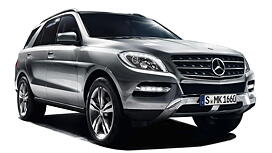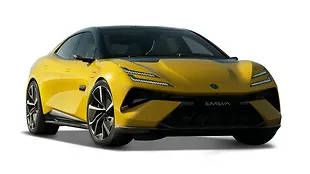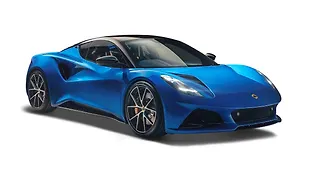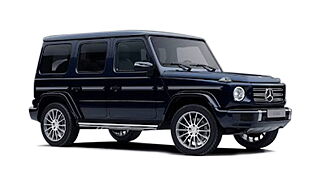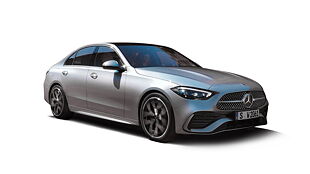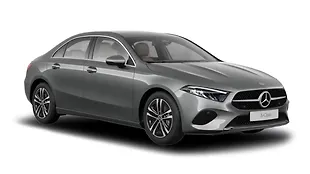Page 1

India isn’t a country that is exactly obsessed with automotive safety. We don’t generally believe in the goodness of seatbelts, ABS or airbags. One wonders, then how well an M-Guard car will be received in this market, especially when the first car, the ML500 Guard, costs Rs 2.49 crore ex-showroom. In an interview with Markus Rubenbauer, head - International Guard Business, we find out what makes M-Guard cars the safest on the planet. Here are some excerpts from our interview.
When did it all begin?
Mercedes armoured the first car in the world in 1928 for the Japanese Emperor Hirohito. We have the largest portfolio of armoured cars in the world. When it comes to the need of heads of state, Mercedes is the first choice.
Tell us about the range.
The range starts with the E Class with a ballistic resistance of VR4, which has the power of stopping a magnum .44 round. VR1 would be a thrown stone, VR2 would be something like a baseball bat. Another important level is VR6, which denotes resistance to a Kalashnikov with soft core ammunition. Our S Guard can go up to VR9, which can stop hard core munition from an AK47 or even from sniper rifles. This marks the top-end of armouring non-military vehicles.
We were then shown an animation which showed how the passenger cell is protected – through a combination of steel panels and thicker, bulletproof glass.
How is the car certified?
An independent authority called Ballistic Testing Authority tests the cars for protection. They fire at least 350 rounds at it, and especially the parts which are difficult to armour like the gaps between the doors and the roof, or between the glass and the roof. Even if a single round makes it into the interior, the vehicle fails the test. We haven’t failed any test in the last few years, and all our cars have a certificate that shows their level of protection.
Testing a car against bullets is one thing; testing against explosives is another. The minimum protection these cars have to have is protection against a hand grenade, the Diehl DM51. Our S Class is tested with two grenades at the same time under the car. So what we normally do is we shoot the car, then we take it to the explosive test. We throw not less than nine grenades on the car – some on the roof, some below to make sure that we reach the highest possible level of protection.
What if the tyres are shot out?
If the tyres are shot out, you can keep driving on them at 80kmph (for 80 kilometres). It doesn’t matter if it is the rubber or rim.
What changes when the car is armoured?
The weight changes when a car is armoured. The M Class you see outside (ML500 Guard) has an additional weight of 300-350kg compared to the base vehicle. The S Class with high protection weighs 1.5 tons more. This is like putting an E Class on top of a regular S Class! This means that we have to change certain parts of the car. For example, we change the whole drivetrain including the damping system, the axles get new parts which are exactly the same as the standard car but aren’t made of aluminium but of special steel. Then we change the braking system. The current S Guard has two front brake callipers, in the next generation we will shift to a single six-piston calliper. We have around 75 “black boxes” in the car that are reprogrammed – these control the ABS, ESP, ASR, airbag deployment etc. Last but not least, we also offer special training to all our markets that sell the car – this involves service and repair, or if the customer needs something more. There are two people in Stuttgart that are dedicated to solving the problems of Guard customers around the clock.
We also provide driver training to customers – adding 1.5 tons to a car is not nothing, and it is important that the drivers get a feel for the car. So when a customer purchases an S Guard, he has the right to send two drivers to Germany for a two-day driver training programme. We teach them high dynamic manoeuvres with these cars. What we don’t teach is tactical driving, like pushing a car out of the way. We are not an armourer, we are a car manufacturer and remain so even through this training.
Page 2

What is your largest traditional market?
Our biggest market is Latin America, where around 20,000 total armoured vehicles sell annually. This is all armoured cars, not just Mercedes-Benz. The second biggest market is Russia, including Eastern Europe and third is the Middle East.
What is your most popular model?
It depends on the region. Russia by far prefers the S Guard. Nearly 90 per cent of Russian sales are S Guards whereas in Brazil and Mexico 90 per cent of the cars are M and E Guards. We have sold quite a few units of the S Guard in India.
How much time does it take to develop a Guard model?
An aftermarket armourer develops his armouring kit in six weeks. We take two years because we believe that this is what makes it reliable. There is no sense in having an armoured car that doesn’t work.
Does the Guard development process start at the same time as the regular vehicle?
At the very beginning of the development process the Guard team is asked if we think it’s worth making a Guard version of a model, and if we say yes, then the fact that a Guard version will be built is accounted for right from the drawing stage.
Who are your customers?
We have two target groups: the first is politicians and government authorities. They are our main targets for the S Guard and Pullman. Celebrities and managers of big companies prefer the E and M Guard.
Are we going to see a sports car Guard version?
No, we won’t – because how can you protect an SL without taking emotion out of this car? That wouldn’t make sense.
In the last ten years Guard cars have been sold in 80 markets worldwide, and we came away with the happy news that if you wait for six more months, you can probably have an M Guard with VR6 levels of protection. If you are someone who needs protection on the move, may we suggest a Guard over a bunch of guards?

